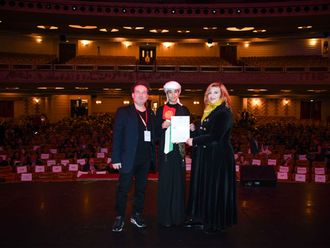After three years of fighting the Abu Sayyaf guerrillas with guns sometimes older than themselves, Philippine Army Captain Harold Cabunoc and his men are more than willing to accept U.S. offers of help.
But the 29-year-old, battle-scarred commander of the elite 10th Scout Rangers Company wants to make one thing clear.
"This is our war... This is a war of the Filipinos, not of the Americans," Cabunoc said, pride glowing in his eyes.
Cabunoc spoke to reporters at the weekend as preparations went into high gear for the arrival on Basilan island of U.S. Special Forces, who will train local soldiers fighting extremists linked to the Al Qaida network of Osama bin Laden.
The Americans' arrival on Basilan, expected around the second week of February, will open a second front in the United States' global campaign against terror, after Afghanistan.
The 160 Special Forces will join Filipinos in training patrols on an island of mist-clad hills and jungles, where the Abu Sayyaf has been holding a U.S. missionary couple hostage for more than eight months.
Officially, the Americans will not engage in combat but they will be armed and, if attacked, can fire in self-defence. The presence of U.S. troops is a controversial issue for the former U.S. colony, with critics arguing they violate the constitution which bars foreign troops taking on a combat role.
Two lawyers filed a petition at the Supreme Court on Friday seeking a temporary restraining order halting the joint exercise.
The training, involving live ammunition and live targets, aims at stamping out what diplomats call the Abu Sayyaf scourge.
Cabunoc and his men said they welcomed the training and would love to have high tech equipment, such as modern assault rifles, night vision goggles, powerful radios and surveillance systems that would help them pinpoint the locations of the Abu Sayyaf.
In the end, Rangers say, U.S. technology will prove decisive.
"This is what I can tell the Abu Sayyaf: 'Your days are numbered. If we are supported by the Americans, we will find you. Either you surrender, or you die," Cabunoc said.
U.S. help 'welcome but this is our war'
After three years of fighting the Abu Sayyaf guerrillas with guns sometimes older than themselves, Philippine Army Captain Harold Cabunoc and his men are more than willing to accept U.S. offers of help.












